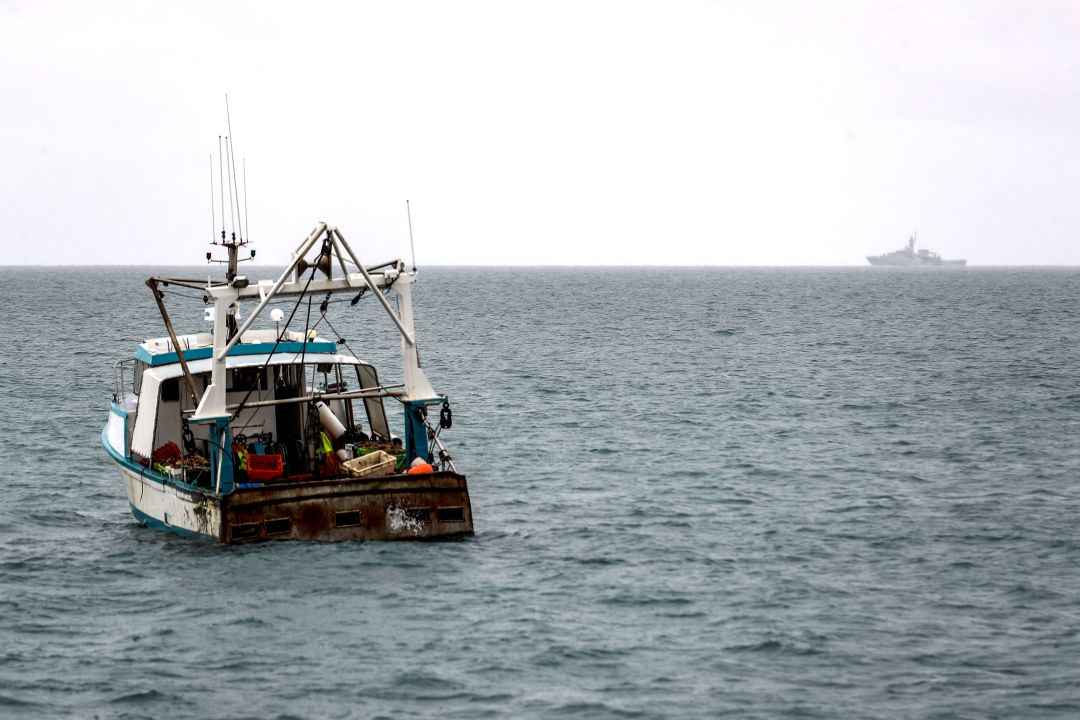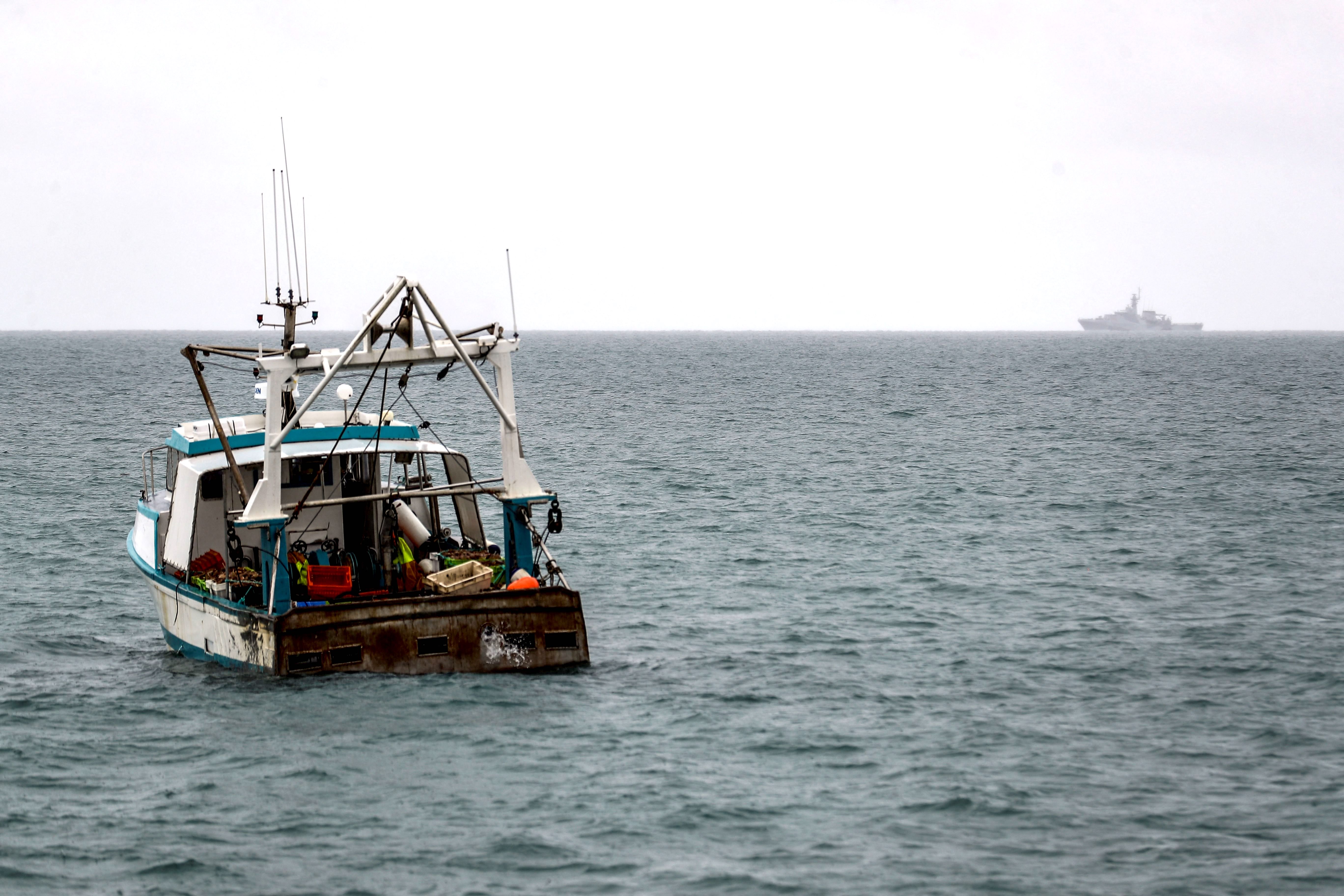The stand-off between France and Britain has escalated into something altogether more serious. Yesterday, the French maritime minister called for Jersey’s electricity supply to be cut off in response to a dispute over fishing rights. Egged on by French officials, around 80 boats began blockading the port of St Helier this morning in a move that is reminiscent of Ursula von der Leyen’s aborted plans for a hard Irish border to stop the flow of vaccines into the UK. Now there are scenes of British Navy vessels approaching the fishing boats as French ships chart a course for the Channel island.
Some on the Continent are claiming that the stand-off has been manufactured by Boris Johnson to deflect from his various scandals ahead of today’s elections. But these suggestions fail to address the central question: why would France dramatically escalate the situation by threatening to cut electricity to nearly 100,000 Jersey residents over the fishing rights of 41 French boats? And why have French ministers refused to engage with the British agriculture minister to try to solve the dispute?
The answer is that the Élysée is playing politics. Next month Emmanuel Macron’s party faces departmental and regional elections that will set the tone ahead of the 2022 presidential race. These will be an important barometer for Macron’s young party, which stormed to a surprise victory in 2017 on an agenda of change and reform. The pandemic has scuttled any hopes Macron had of delivering his most ambitious election promises. Instead, he is betting on a strategy that he hopes will leave him as the only candidate capable of defeating Marine Le Pen.
Macron cannot risk being outflanked by the fisherman’s friend
Macron aims to co-opt centre-right voters at the expense of Les Républicains, a mainstay of the French political landscape whose former leaders include Nicolas Sarkozy and Jacques Chirac. The Jersey dispute is just a tactic in Macron’s broader strategy.
Controversy kicked off this week when a Les Républicains regional president, Renaud Muselier, forged an alliance with Macron’s En Marche party to prevent a far-right victory. En Marche promised to withdraw its challenger in the region and instead back Muselier as its preferred candidate.
What at first seems like a loss for Macron incensed Les Républicains’ leaders over what they described as a takeover. Muselier was stripped of his ticket, although he is supported by the pro-Macron mayors of Nice and Toulon, the latter of whom quit Les Républicains yesterday with a warning that only an alliance with En Marche will prevent Le Pen from coming to power.
Macron is relying on the same arguments as he begins his re-election campaign. This may seem like a strange trajectory for the former advisor and minister for socialist president Francois Hollande. When Macron broke away to form his own party, the young former banker offered weary French voters a novel political choice: a party that claimed to be unsullied by the politics of either of the left or the right. The socialists took just 6.4 per cent of the first-round vote, and the French left remains weak and divided to this day.
Macron’s 2017 victory annihilated the left — his 2022 strategy relies on atomising the right. The Muselier incident shows that he is winning over some reluctant right-wingers. But in order to win nationally he needs two things: support from centre-right voters and the absence of a strong right-wing candidate.
His two potential challengers are the Brexit negotiator Michel Barnier and Xavier Bertrand, a former health minister under Chirac and labour minister under Sarkozy. Bertrand is president of the Hauts-de-France region, which includes Calais and much of the northern French fishing industry. Macron cannot risk being outflanked by the fisherman’s friend.
Bertrand faces re-election at next month’s regional vote and has said that if he fails he will leave politics for good. Spying an opportunity, Macron has reportedly asked his justice minister, who is from the northern city of Maubeuge, to stand in the elections — either to defeat Bertrand or to push him to accept an alliance with En Marche.
It’s a good idea in theory, but Macron’s party was routed in the 2020 local elections after pursuing the same strategy of forging alliances with the centre-right. Recent polls show that 69 per cent of French voters object to Muselier’s En Marche-Les Républicains alliance. For all the political wranglings, voters don’t like to feel as though they’re being traded.
And therein lies Macron’s problem — his centrist credentials are crumbling under the growing consensus that he is a gambler who lacks any real convictions. His promise of ‘neither left nor right’ has been abandoned in favour of right-wing alliances. The logic of such a strategy dictates further conflict in the Channel so that he can be seen to be standing up for French fishermen. But Macron has no answer to the crucial question ahead of next April’s presidential election: what happens if the left-wing voters who helped bring him to power in 2017 don’t show up next year?







Comments